Research
Our interest is an energy conversion toward the carbon neutral. Current topics are CO2 free hydrogen production from carbon resources, energy conversion of carbon resources using fuel cells, and chemical products production from CO2 (CO2 electrolysis). In CO2 electrolysis, we are focusing that oxygen can also be produced from CO2, which is useful in the space exploration. In addition, we research materials informatics based on DFT calculation (Density Functional Theory).
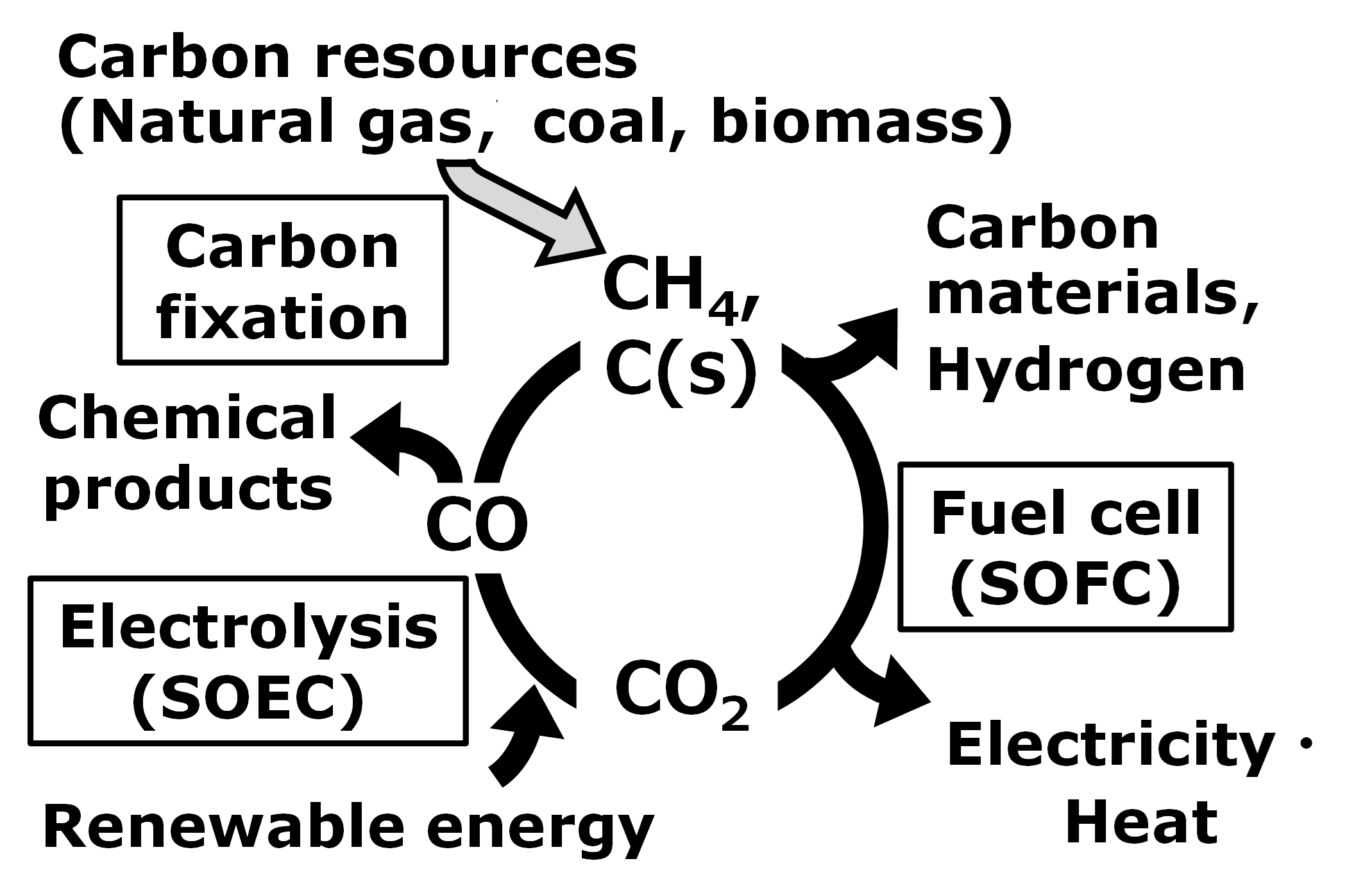
CO2 electrolysis using solid oxide cells
CO2 electrolysis is also attracting attention in the space and planetary exploration, where O2 is a valuable resource. However, there are many unknowns about the phenomena occurring on the electrode. We are developing functional electrodes that can solve the problems of CO2 electrolysis (e.g., CO2 oxidation and carbon precipitation) by using operando X-ray analysis and first-principles calculations.
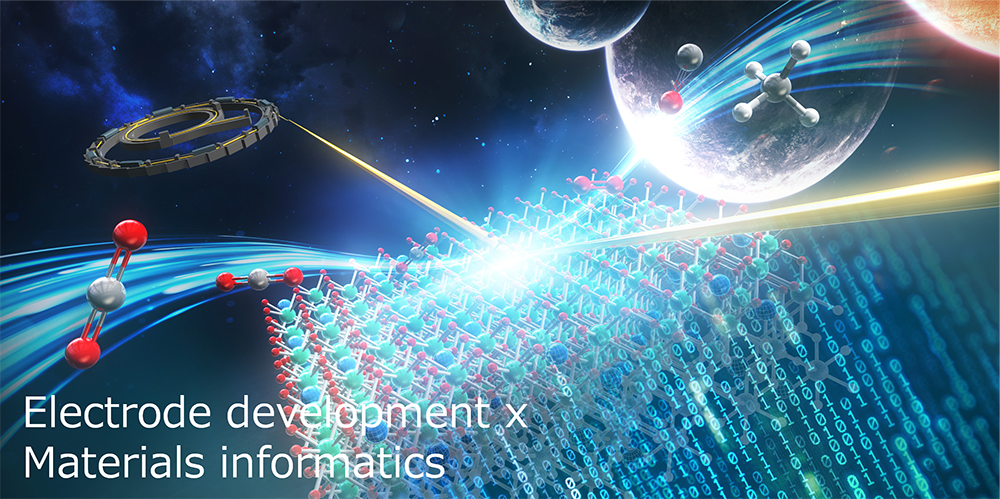
Operando X-ray analysis
We clarify the electrode surface of a solid oxide cell during operation in real time using the synchrotron radiation beamline of the SPring-8.
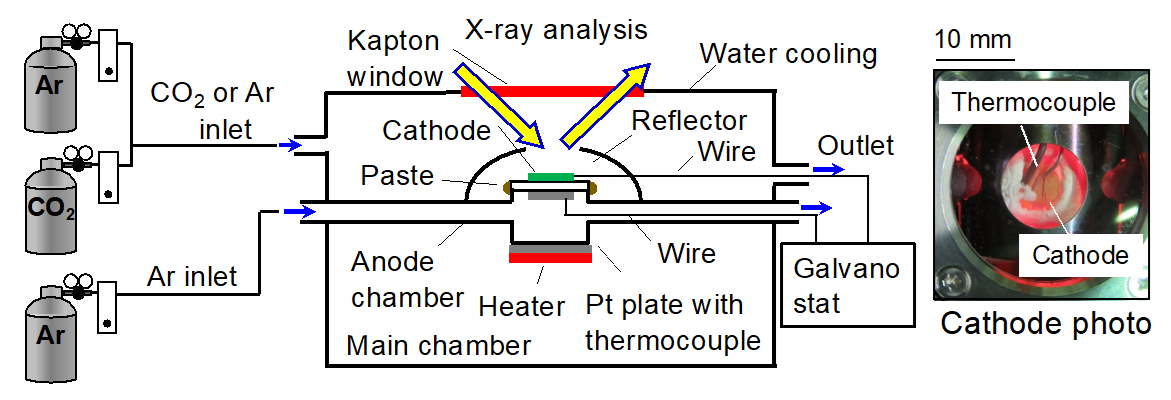
SOEC device for operando X-ray analysis
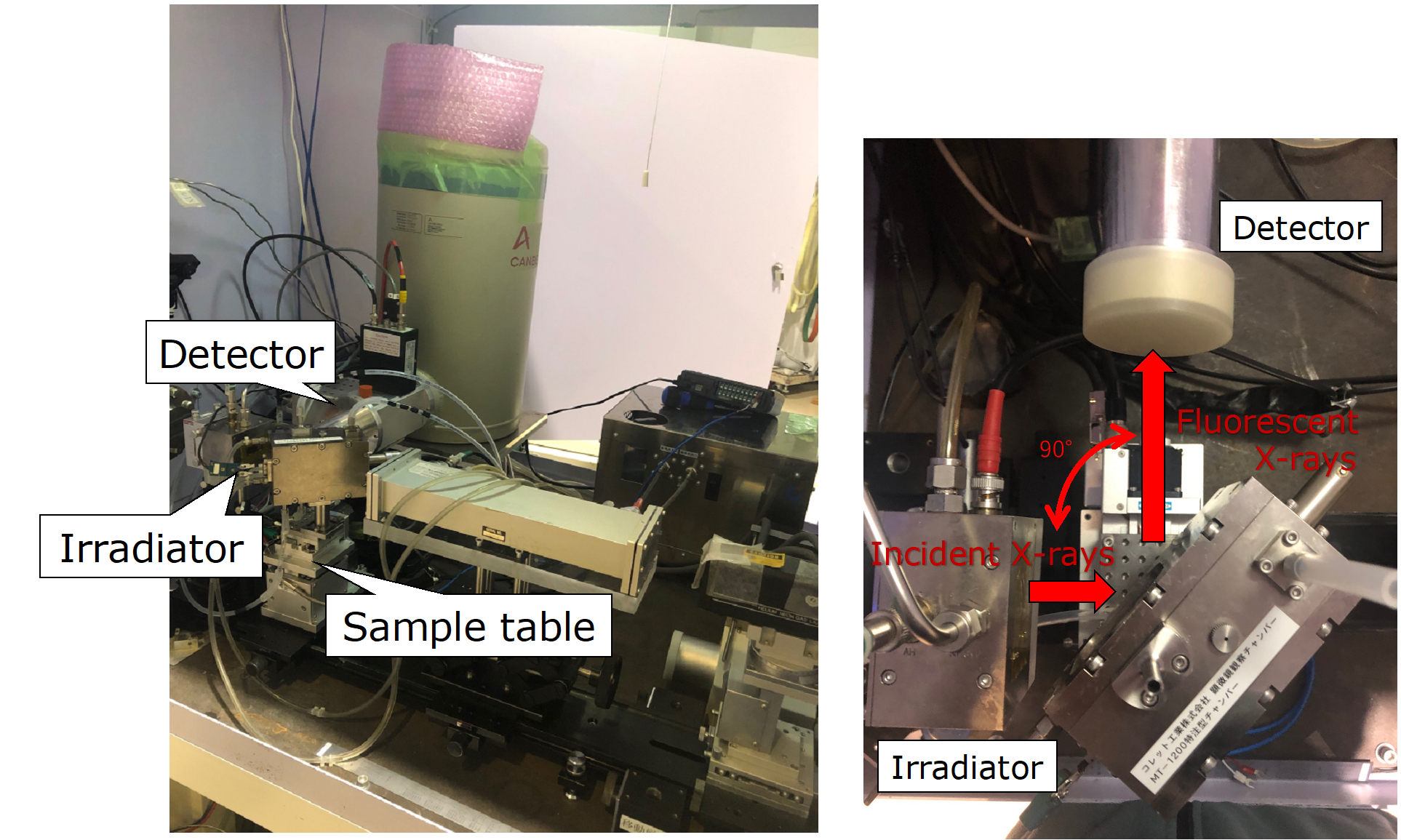
BL-3 experimental hatch in SR-center, Ritsumeikan University
DFT calculation and Materials Informatics
Density Functional Theory, or DFT for short, is a complex theory, but in recent years it has become a “tool” in materials research. X-rays and electron microscopes are also effective for considering atomic-level structures, but DFT calculations display atomic structures on a computer. We are also working on materials informatics, which applies the data obtained from DFT calculations to electrode development.
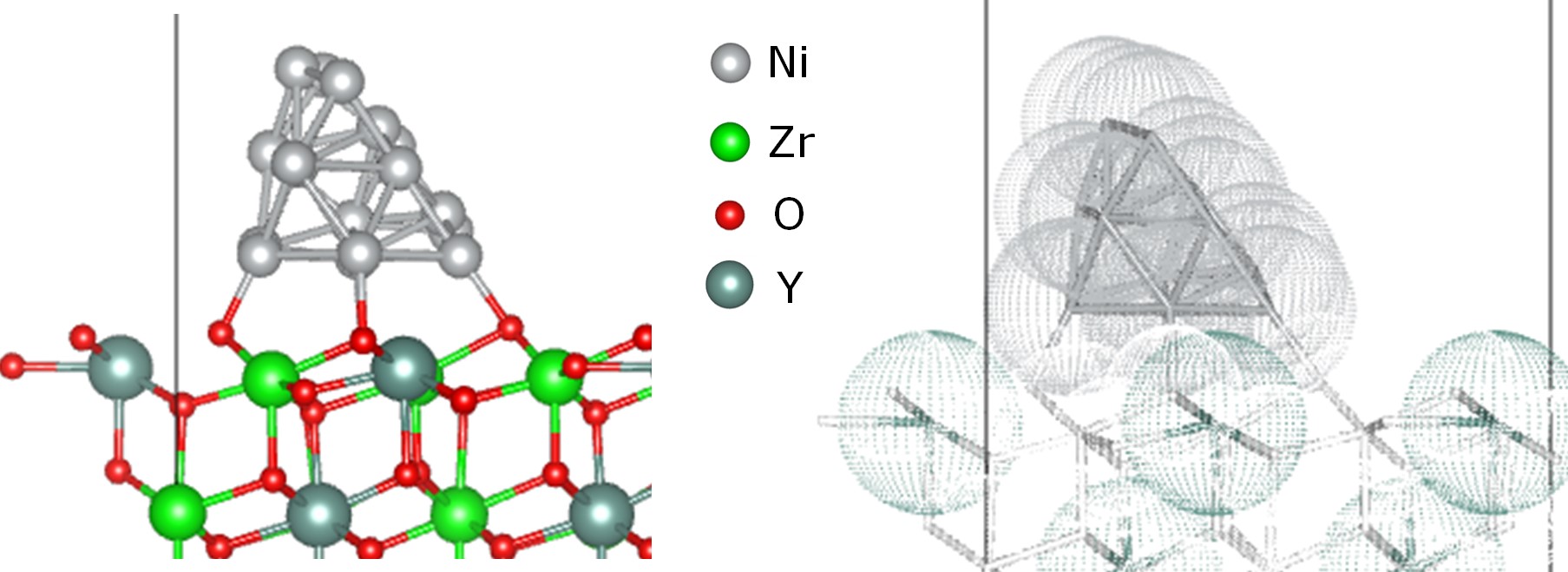
Atomic model of Ni/YSZ triple phase boundary
Electrodes development
Based on the information obtained from electron microscopy, operand X-ray analysis, and DFT calculation, we develop our own electrocatalyst and evaluate its performance.
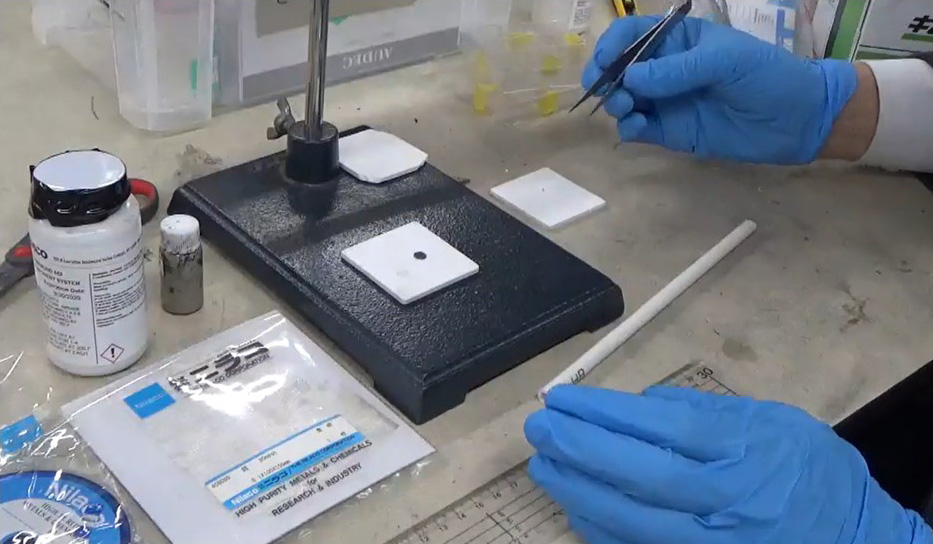
Development of electrode and catalyst
Carbon-based energy conversion
In our laboratory, we are working on the development of turquoise hydrogen and carbon production, and direct carbon fuel cells.
Turquoise hydrogen and carbon production by chemical loops
We are working on the continuous production of turquoise hydrogen (hydrogen derived from fossil fuels but does not emit CO2 during production) and solid carbon from pyrolysis of hydrocarbon gas.
Direct carbon fuel cells
We research the direct conversion of solid carbon into electrical energy, which is based on a solid oxide cell. Solid carbon has excellent storage properties and is abundant in industrial processes.



